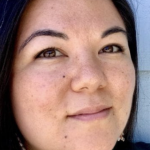Events

- This event has passed.
Kailani Polzak – Voyage Visuality: European Representations of Oceania at the Intersection of Eighteenth-Century Racial Theory and Artistic Practice
February 28, 2024 @ 12:00 pm - 1:30 pm | Humanities 1, Room 210
Amid discussions about universal rights, contestations over land, and debates over the morality of chattel slavery, eighteenth-century Europeans increasingly sought to codify social hierarchy in observable physical differences. This project depended upon and spurred the production of circulatable pictures of bodies in the form of prints. At the same time, recent encounters between European and Pacific Islanders disrupted previously accepted human divisions based on a four-continent model. This talk will analyze prints made after European voyages in Oceania to consider how these works give form to interactions between different visual practices and ways of knowing. Though images made during the so-called “voyages of discovery” are often treated as mere illustrations, this talk will indicate how they do not simply replicate European racialist theories but rather reveal uncertainties and shifts in the visual epistemologies of race.
 Kailani Polzak is an Assistant Professor in the History of Art and Visual Culture at the University of California, Santa Cruz. She specializes in early-modern European visual culture, focusing on questions of intercultural contact, race, and colonialism in representations of the Pacific. Polzak’s current book project examines the graphic and printed works created about the circumnavigatory expeditions conducted by Britain, France, and Russia in Aotearoa New Zealand, Australia, and Hawaiʻi in the late eighteenth and early nineteenth centuries and traces how these pictures were mobilized in constructions of racial difference and geographical space. Her current research and publications emphasize the methodological questions raised by writing about and curating colonial histories from multiple perspectives.
Kailani Polzak is an Assistant Professor in the History of Art and Visual Culture at the University of California, Santa Cruz. She specializes in early-modern European visual culture, focusing on questions of intercultural contact, race, and colonialism in representations of the Pacific. Polzak’s current book project examines the graphic and printed works created about the circumnavigatory expeditions conducted by Britain, France, and Russia in Aotearoa New Zealand, Australia, and Hawaiʻi in the late eighteenth and early nineteenth centuries and traces how these pictures were mobilized in constructions of racial difference and geographical space. Her current research and publications emphasize the methodological questions raised by writing about and curating colonial histories from multiple perspectives.

The Center for Cultural Studies hosts a weekly Wednesday colloquium featuring work by faculty and visitors. We gather at 12:00 PM, with presentations beginning at 12:15 PM.
Staff assistance is provided by The Humanities Institute.
